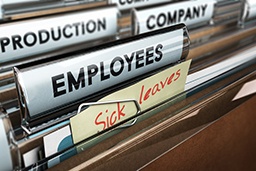A bill has been passed and signed into law this week by Governor Gavin Newsom giving more employees in California access to paid sick leave as it relates to COVID-19.
As previously reported by Michelman & Robinson, ordinances are already on the books requiring certain employers to provide supplemental sick leave to employees within the City of Los Angeles as well as unincorporated L.A. County by virtue of the pandemic. These ordinances are in addition to the Families First Coronavirus Response Act, which requires most companies employing fewer than 500 workers to make two weeks of paid sick leave available to those affected by the coronavirus.
With the new law, Assembly Bill 1867, all California workers who have tested positive for COVID-19 or have been exposed to the coronavirus have access to paid sick leave for the remainder of the year. Governor Newsom has cast AB 1867 as something that "closes the gaps in paid sick days” between the FFCRA and prior ordinances aimed at specific industries, such as the food sector. The latest law pertains to all private employers with over 500 employees, together with public and private employers subject to the FFCRA that elected to exclude health care provider or emergency responder employees from the FFCRA emergency paid leave requirements.
Q. How Does AB 1867 Differ From Previous Executive Orders Expanding Access to Paid Sick Leave?
A. AB 1867 is similar to Executive Order N-51-20 signed by Governor Newsom earlier this year providing supplemental paid sick leave for food sector workers. The new law, which takes effect immediately and is retroactive to April 16, 2020 (the effective date of EO N-51-20), essentially codifies that EO’s language into California Labor Code section 248. That being said, what is critical to understand about AB 1867 is that it expands the relevant paid sick leave requirements and establishes supplemental paid sick leave for all workers employed by private businesses having 500 or more employees, along with those public and private employers of first responders and health care employees who opted not to provide leave under the federal law.
Q. What Employees Are Entitled to Leave Pursuant to AB 1867?
A. The new law provides access to supplemental paid sick leave to employees (1) told by a health care provider to quarantine or isolate due to COVID-19; (2) subject to a federal, state, or local quarantine or isolation order related to the pandemic; or (3) otherwise unable to work (or prohibited by an employer from doing so) because of coronavirus-related health concerns.
Q. How Is the Newly Required Supplemental Paid Sick Leave Calculated?
A. Full-time employees (those who work 40 hours/week) shall receive 80 hours of supplemental paid sick leave pursuant to the AB 1867, and employees who work less than 40 hours/week (and are not classified as full-time but work a regular schedule) are eligible for the total number of hours they are normally scheduled to work over a two week period. There are additional calculations that apply to those that work variable schedules.
The hourly rate at which supplemental sick leave must be paid is either the employee’s regular rate of pay for the last pay period or the state or local minimum wage, whichever is higher. Still, supplemental paid sick leave paid to any employee shall not exceed $511 per day and $5,110 in the aggregate.
Pursuant to the law, an employer must make supplemental paid sick leave available for immediate use upon an employee’s oral or written request. Also, an employer may not require an employee to use any other paid or unpaid leave, paid time off, or vacation time before or in lieu of COVID-19 supplemental paid sick leave.
Q. What About Pandemic-Related Sick Leave Already Paid?
A. Employers may take a credit for supplemental sick leave due to COVID-19 that has already been provided to any given employee, so long as it is equivalent or exceeds AB 1867’s requirements. Note, however, that an employer that has provided paid sick leave in a lesser amount (for example, state- or city-mandated paid sick leave) will now have to retroactively make up the shortfall.
Q. Is There Anything Else to Know About AB 1867?
A. Yes, the law includes some other mandates that apply specifically to food sector employees. For instance, these workers must be allowed to wash their hands every 30 minutes and additionally as needed. In addition, the Labor Commissioner is authorized under AB 1867 to levy financial penalties upon (all) employers for not providing sick days, which Governor Newsom characterizes as “a critical enforcement tool.”
Of course, the Labor & Employment attorneys at M&R are available to answer any questions you may have about the requirements of AB 1867 or any other employment-related queries that are pressing.
This blog post is not offered, and should not be relied on, as legal advice. You should consult an attorney for advice in specific situations.

